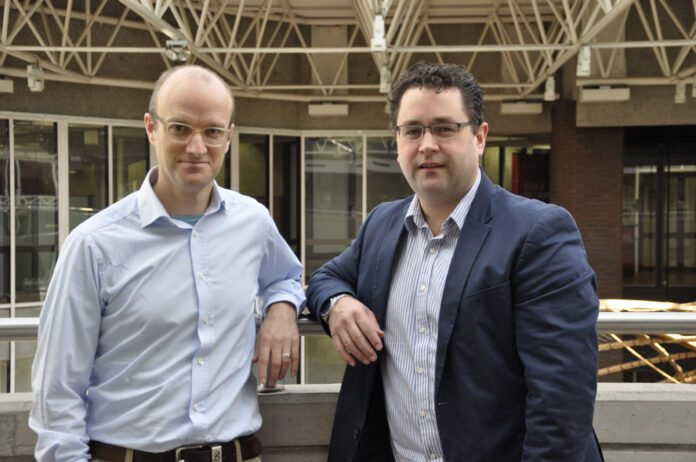There is a strong North Clare influence in a multi-disciplinary science project which could have life-changing benefits for people with mobility difficulties
Belharbour-based Dr Adam de Eyto is a member of the University of Limerick group that is part of the European team of researchers, led by the Italian Institute of Technology, which has begun work on XoSoft, a wearable soft-robotics intelligent-clothing system.
Researchers working on the project, aimed at improving movement for people with reduced mobility, plan to build the first fully-functional prototype of ‘intelligent’ trousers by 2019. The soft, biometric exoskeleton would allow older people or people with disabilities to move their legs by detecting movement intention.
The Design Factors Research Group, based in UL’s School of Design, is part of the ground-breaking health-robotics project to develop the soft, modular, lower-limb exoskeleton. The total value of the project to UL is €550,000 over three years.
The UL group is led by senior lecturer in design ergonomics and Health Research Institute (HRI) member, Dr Leonard O’Sullivan and head of the School of Design, Dr Adam de Eyto.
According to Dr O’Sullivan, this technology could be life-changing for older people and people with disabilities.
“There are 3.2 million wheelchair users in Europe and another 40 million who cannot walk without an aid. People with limitation in independent movement of their legs can rely on a variety of assistive devices. Yet the available assistive aids are usually bulky, fairly inflexible and can therefore only partially support the process of movement. Neither do they encourage or support the activation of legs, which is essential to prevent further atrophy. This is where XoSoft comes in,” he added.
In the XoSoft project, state-of-the-art advanced textiles and smart materials will be used to create sensing and variable-stiffness joints. Built-in sensors will communicate the user’s motion and intention to the controlling unit for analysis to determine and provide the appropriate level of assistance. Depending on the user’s need at a given moment, the device will provide support, release or freedom of movement.
The UL group will use its expertise in user-centred design and medical-device innovation to lead this aspect of the design of XoSoft.
“This user-centred design will ensure that the needs of real users drive the technical innovations within the project, creating an effective and user-friendly device,” Dr O’Sullivan outlined.
According to HRI director Professor Austin Stack, “The development of innovative technologies to enhance health and well-being is a key goal of the Health Research Institute (HRI) and the success of Dr Leonard O’Sullivan and the Design Factors Research Group is a fantastic achievement for the HRI and the University of Limerick. This is an excellent example where interdisciplinary research can deliver real impact for our ageing population and those with disabilities”.
The project secured €5.4m funding under the European Union’s Horizon 2020 Research and Innovation Programme. Besides five research groups from the disciplines of robotics, bioengineering, ambient intelligence and design, the team also includes four companies and clinical partners with expertise in rehabilitation technologies, geriatrics and prosthetic applications.
A native of Ennis, Colin McGann has been editor of The Clare Champion since August 2020. Former editor of The Clare People, he is a journalism and communications graduate of Dublin Institute of Technology.



